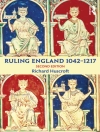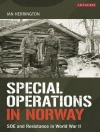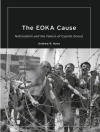By expanding the definition of ‘epistle’ to include any writing that addresses the intended receiver directly, Ja Hyun Kim Haboush introduces readers to the rich epistolary practice of Chos?n Korea. The Chos?n dynasty (1392-1910) produced an abundance of epistles, writings that mirror the genres of neighboring countries (especially China) while retaining their own specific historical trajectory. Written in both literary Chinese and vernacular Korean, the writings collected here range from royal public edicts to private letters, a fascinating array that blurs the line between classical and everyday language and the divisions between men and women. Haboush’s selections also recast the relationship between epistolography and the concept of public and private space.
Haboush groups her epistles according to where they were written and read: public letters, letters to colleagues and friends, social letters, and family letters. Then she arranges them according to occasion: letters on leaving home, deathbed letters, letters of fiction, and letters to the dead. She examines the mechanics of epistles, their communicative space, and their cultural and political meaning. With its wholly unique collection of materials, Epistolary Korea produces more than a vivid chronicle of pre- and early modern Korean life. It breaks new ground in establishing the terms of a distinct, non-European form of epistolography.
विषयसूची
Acknowledgments
Explanatory Note
Introduction: The Epistolary Genre and the Scriptural Economy of the Choson
I. Public Letters
1. Royal Edicts: Constructing an Ethnopolitical Community (Ja Hyun Kim Haboush)
2. Female Rulers: Queen Dowagers’ Edicts and Letters (Ja Hyun Kim Haboush)
3. Memorials to the Throne (John Duncan and Ja Hyun Kim Haboush)
4. Joint Memorials: Scholars’ Channel of Communication to the Throne (Hwisang Cho)
5. Individual Petitions: Petitions by Women in the Choson (Jisoo Kim)
6. Petitions by a Collective Body: A Petition by the Residents of the Chip’yong District (Ja Hyun Kim Haboush)
7. Letters of Appeal (Sun Joo Kim)
8. Circular Letters in Choson Society: Writing to Publicize Opinions (Hwisang Cho)
9. Open Letters: Patriotic Exhortations from the Imjin War (Ja Hyun Kim Haboush)
10. Manifestos During the Hong Kyongnae Rebellion of 1812 (Sun Joo Kim)
11. Chon Pongjun’s 1894 Tonghak Declaration (George Kallander)
12. Letters to the Editor: Women, Newspapers, and the Public Sphere in Turn-of-the Century Korea (Se-Mi Oh)
II. Letters to Colleagues and Friends
13. Correspondence Between Scholars: Political Letters (Ja Hyun Kim Haboush)
14. Scholarly Letters (Marion Eggert)
15. Friendship Between Men (Marion Eggert)
16. Friendship Between Women: One Man’s Consorts (Ja Hyun Kim Haboush)
17. Friendship with Foreigners (Marion Eggert)
III. Social Letters
18. Letters of Greeting (Ja Hyun Kim Haboush)
19. Letters on Everyday Life (Sun Joo Kim)
20. Male Concubinage: Notes on Late Choson Homosexuality by an American Naval Attaché (Carter J. Eckert)
IV. Family Letters
21. Letters Between Spouses (Ja Hyun Kim Haboush)
22. Personal Royal Letters: Correspondence Between Monarchs and Their Children (Eleanor S. Hyun)
23. The Sunch’on Kims: Vignettes of Family Life Through Letters (Ja Hyun Kim Haboush)
24. Fathers’ Letters Concerning Their Children’s Education (Sun Joo Kim)
25. Mothers’ Letters of Instruction to Their Children (Ja Hyun Kim Haboush)
26. Yi Ponghwan’s Letters to His Mother During His Trip to Japan (Ja Hyun Kim Haboush)
27. Daughters’ Letters to Members of Their Natal Families (Ja Hyun Kim Haboush)
V. Letters Written Away from Home
28. Letters Written in Korean by Exiles (Ja Hyun Kim Haboush)
29. A Letter Written in Literary Chinese by Chong Yagyong While in Exile (Bonnie S. Kim)
30. Letters by Prisoners of the Imjin War (Ja Hyun Kim Haboush)
31. Letters Sent Home by Royal Hostages (Ja Hyun Kim Haboush)
VI. Deathbed Letters
32. A Letter Written Before Execution: A Condemned Man’s Last Thoughts to His Children (Ja Hyun Kim Haboush)
33. Letters of the Catholic Martyrs (Ja Hyun Kim Haboush)
34. Madam Yi’s Farewell Letter to Her Son (Jungwon Kim)
35. Daughters’ Letters of Farewell to Their Fathers (Jungwon Kim)
VII. Letters to the Dead
36. A Wife’s Letter to Her Deceased Husband (Sun Joo Kim)
37. Kwon Sangil’s Farewell to His Deceased Wife (Martina Deuchler)
38. Letters to Deceased Children (Ja Hyun Kim Haboush)
VIII. Fictional Letters
39. Love Letters in The Tale of Unyong (Michael J. Pettid)
Bibliography
Index
लेखक के बारे में
A native of Seoul, Ja Hyun Kim Haboush studied Korean and Chinese history and literature at Columbia University and is now the school’s King Sejong Professor of Korean Studies. Her publications include
The Memoirs of Lady Hyegyong and
The Confucian Kingship in Korea.












